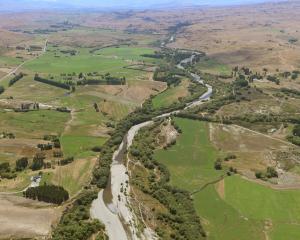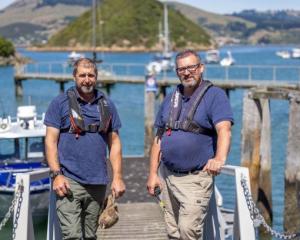Having outlined its plans to ensure rural water quality is improved, the Otago Regional Council is setting its sights on urban stormwater systems, which could have major implications for ratepayers.
Council chairman Stephen Woodhead said it had become apparent during the rural water quality change process that all of Otago needed to commit to a long-term water quality solution.
But finding a practical and affordable solution all councils can agree on seems challenging, with at least one of the main water treatment options dismissed by Dunedin City Council staff as ineffective and "completely unaffordable".
Cr Woodhead said when regional council staff met city and district council staff as part of public consultation on plan change 6A, which introduces rules to control rural water pollution from runoff, leaching, and farm drains entering rural waterways, they also outlined implications for discharges from reticulated systems.
The finer details of how to protect waterways from degradation from urban discharges would form another project which would start in July.
Stormwater discharge in Otago is a permitted activity in the regional water plan.
It does not require resource consent as long as it contains no sewage and after reasonable mixing does not show conspicuous oil or grease, change in colour or clarity, or cause objectionable odour or significant effects on aquatic life.
But new contaminant standards would eventually be set for stormwater discharge from new and existing sites, Cr Woodhead said.
Standards for existing sites would be phased in.
The project will probably have serious consequences for urban communities and ratepayers throughout Otago, as operators of urban water systems - mainly district and local councils - will be required to install treatment systems to ensure standards are met.
Cr Woodhead said many urban stormwater treatment options were available and new technologies were being developed all the time.
System operators could opt for an "at-source" or "end-of-pipe" solution, or a combination, to meet the standard.
However, Dunedin City Council water and waste services manager John Mackie said many of the technologies did not work and the city could not afford the end-of-pipe solution.
Finding an affordable practical solution for improving water quality in urban stormwater systems would be a challenge.
The city council had been aware since last year the project was coming up, and its submission on the rural water change plan already encompassed many of its views on the regional council's general plans, some of which the city council "strongly opposed".
"There is a lot of vigorous debate to come."












